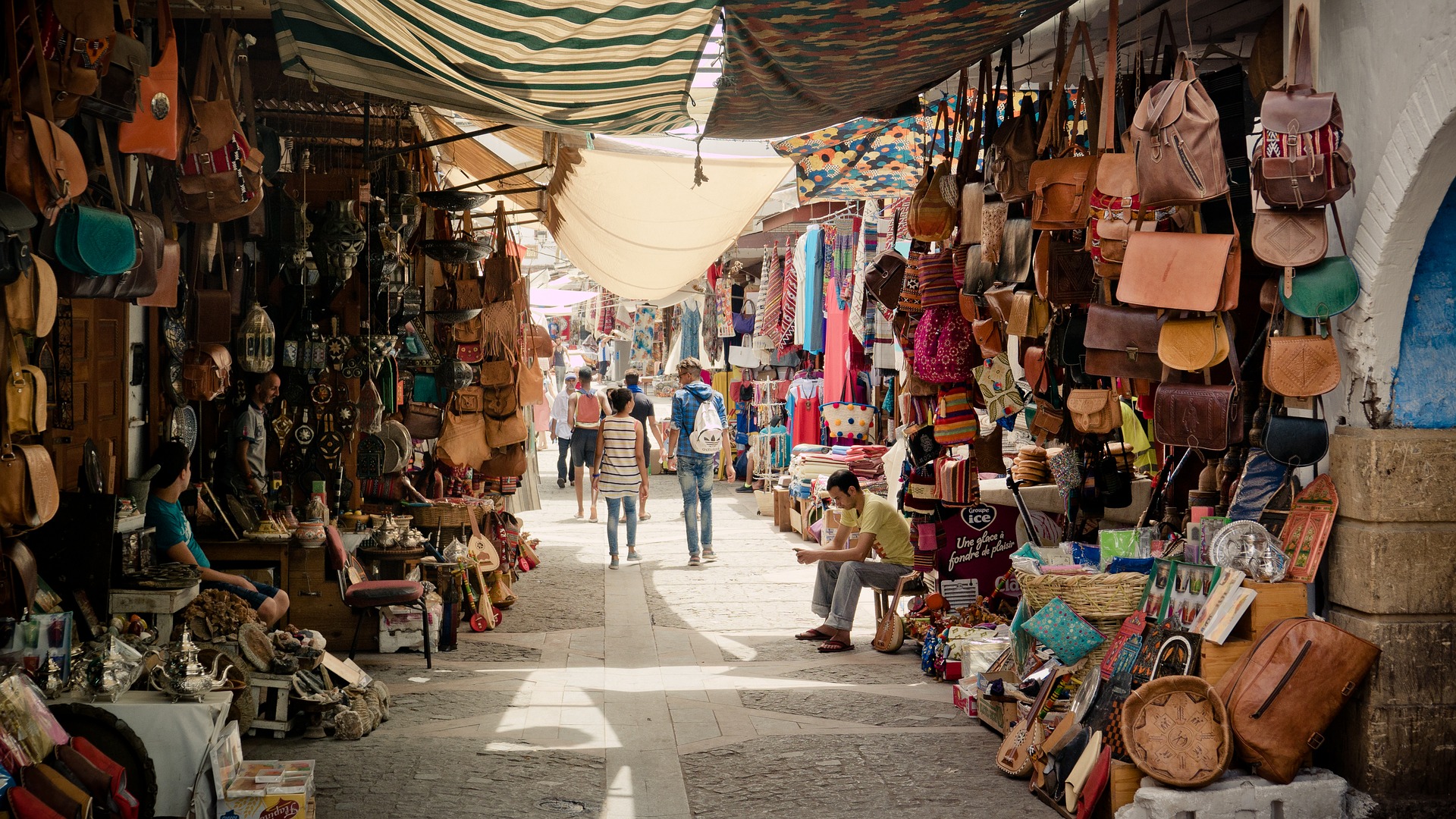Considered an integral part of the transaction process in many parts of the world, haggling often throws those of us from lands of fixed prices off-kilter. We walk away from market stands with sweat on our brow, festering feelings of frustration, and vows of restricting our shopping to air-conditioned venues with price tags.
Vagabondish is reader-supported. When you buy through links on our site, we may earn a small affiliate commission. Read our disclosure.
Haggling, however, is an everyday survival skill for the long-term traveler, used beyond acquiring souvenirs to negotiate transport and tickets or to purchase food.
While it may never become as easy as reading a sticker price, after mastering a few time-tested bartering tactics haggling can become a much more enjoyable and natural experience. One you may even miss when you return home and can no longer implement a half-off clothing sale on a whim.
The situation: After traveling all day on a rickety bus, you’ve arrived at the center of commerce for the majority of the local world, no, not the mall, but the local marketplace. You stand transfixed, overwhelmed by the chaotic hubbub and glittering baubles for sale. It takes a minute for you to adjust, but after a moment your consumer instincts kick in and you are ready to make a purchase. You select the stall of your preference; choose your item — now all you have to do is pay. If it were only that easy …
Never Accept the First Price
In most cultures, accepting the first quoted price is unheard of and a blatant declaration of your foreigner status and subsequent naiveté A first price is used by vendors to test the waters, to gauge what you’ll accept as reasonable. I’ve had a 24-rupee rickshaw ride in India quoted to me for 400.
I’ve had a 24 rupee rickshaw ride in India quoted to me for 400.
If you have an idea of an appropriate price, use it to your advantage to evaluate the one being quoted to you. Exhibiting even a little knowledge goes a long way in lowering prices as merchants will realize that you are willing to barter and not simply buy. If you have no idea what a price should be, take the time to shop nearby stalls and soon a median price will begin to emerge
Quote Lower Than You’re Actually Willing to Pay
Once you have determined an appropriate price range, counter the initial quote with a price lower than you would actually be willing to pay. This suggestion will probably be met with exclamations of incredulity by the vendor, but know that it is all part of the negotiation dance that takes place hundreds of times a day. The vendor will then demand a higher price. In response, slowly increase your original bid to the price you had in mind. The goal is to have it end up as the final sale price.
Buy in Bulk
Another easy way to make prices come down quickly or add value to your purchase is to buy in bulk. Buying multiple quantities is an easy way to get a “two-for-one deal” or other similar bargains. Once you suggest that you are willing to purchase multiple items, the deals often begin to flow freely and with little effort on your part.

Sometimes this is all it takes and you can walk away satisfied with your purchase wondering why travelers constantly gripe about the headaches of haggling. But other times you find yourself in a situation where the vendor won’t budge and is persistently demanding an exorbitant sum. In such situations, having the following two tactics in your arsenal is crucial for successfully negotiating a deal.
Do the Fake: Act Like You’re Going to Walk Away
If the vendor refuses to negotiate but you’ve found the perfect gift for mom and nothing else will do, throw up your hands in frustration and start to walk away. Draw on those high school drama classes and make it believable.
Usually, the threat of completely losing a transaction will have the vendor calling after you with a lowered price, allowing discussions to start anew.
Exploit The Threat of Competition
Another option is to employ the competitor threat. In the midst of negotiation, simply mention that you are willing to go elsewhere for your purchase.
Working in a similar manner to walking away, vendors are more willing to negotiate after they realize they might lose business to one of their neighbors. Use this to your advantage to achieve your desired price.

A Word of Caution
While it’s great to get a good deal, it’s also important to keep exchange rates and perspective in mind when in the heat of the haggle. I’ve stopped myself before realizing that I’ve been resisting making a purchase over the equivalent of 50 cents. My budget can survive the 50-cent foreigner markup without making too much of a dent; however, the local equivalent can have a significant impact on the vendor’s daily earnings. The price you settle on is up to you, of course. But, it’s important to realize when you’re negotiating for real value or just needlessly fighting over nickels and dimes.
Now, it’s finally time to make your purchase. The money is exchanged and the item received. Congratulations: you have successfully completed your first market transaction!
After a few more purchases, you’ll be bartering like a pro and creating your own ingenious tactics. Just expect some resistance when you return home and try to get your morning latte down to $2.50 from $3.
What are your tips for haggling like a pro traveler? Share them with us in the comments below!



